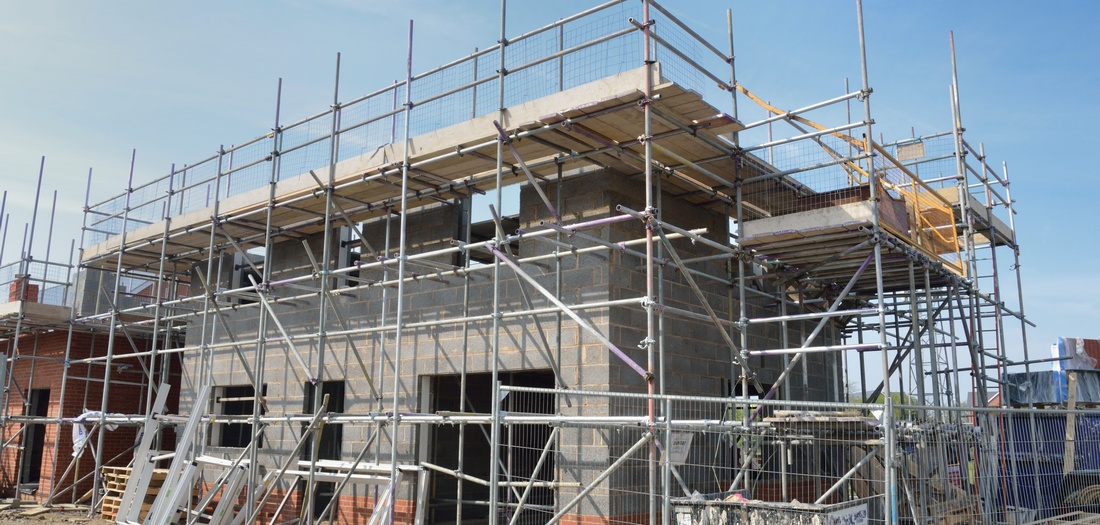Why Building Contractors Somerset West ensure quality craftsmanship
Discover the Important Providers Supplied by a Building Contractor for Your Next Project
When beginning on construction project, recognizing the variety of solutions a building service provider offers is crucial. From preliminary appointments to forecast handovers, these professionals direct clients via each stage. They use essential competence in style, conformity, and monitoring. Understanding what to expect can make all the distinction in achieving an effective end result. What details services could be most useful for your approaching endeavor?
Preliminary Appointments and Project Planning
Preliminary consultations function as the foundation of efficient job preparation in building service provider services (Building Contractors Somerset West). During these initial meetings, specialists involve with customers to comprehend their spending plan, vision, and timeline. This phase is crucial for developing a clear scope of job and determining any kind of possible difficulties that may develop throughout the building procedure
Professionals gather vital information regarding website problems, local regulations, and called for permits. By going over the client's expectations, professionals can give valuable understandings and suggestions, ensuring that the task aligns with the client's purposes. The relevance of interaction in this stage can not be overemphasized, as it lays the foundation for collaboration in between the client and service provider.
Additionally, effective initial assessments aid service providers create an extensive project strategy that lays out necessary resources, timelines, and expense estimates. This positive strategy minimizes misconceptions and establishes the stage for a smoother building experience, eventually bring about a successful job end result.
Layout and Architectural Solutions
Design and building solutions play an important duty in changing a customer's vision right into a tangible reality. These services encompass a thorough range of activities, from preliminary principle development to in-depth design execution. Structure specialists usually team up with knowledgeable architects to produce blueprints that line up with the customer's needs while sticking to useful and visual considerations.
The design procedure commonly begins with a comprehensive assessment, allowing the specialist and customer to review choices, spending plan restraints, and website specifics. Following this, architects develop schematic designs and layout, guaranteeing ideal use room and resources. Throughout this stage, modifications might strike improve the vision even more.
In addition, constructing professionals give understandings on products and construction strategies that can enhance the task's expediency and sustainability. Eventually, efficient style and building solutions are essential in guaranteeing that jobs not only satisfy customer expectations yet likewise stand the test of time in capability and design.
Permitting and Regulatory Conformity
Steering via the landscape of allowing and regulative compliance is important for constructing contractors, as it guarantees that tasks follow regional laws and safety criteria. This process includes getting the needed licenses and guaranteeing that all building tasks fulfill zoning regulations, building codes, and ecological standards. Contractors need to be fluent in the details demands of the territory in which they run, as these can differ significantly from one location to one more.

Construction Management and Guidance
Reliable building and construction administration and supervision are important to the success of any structure job. These procedures include the coordination and oversight of all facets of construction, making certain that tasks are finished effectively and according to strategy. Structure specialists play an essential duty in handling timelines, budgets, and sources, while additionally mitigating threats that may arise throughout building.
Guidance involves keeping an eye on day-to-day tasks on-site, making certain safety criteria are satisfied, and resolving any type of concerns that may interfere with development. A building professional's management cultivates interaction among various groups, including distributors, subcontractors, and customers, which is important for maintaining workflow and achieving task turning points.
Via careful preparation and critical analytical, building management and guidance not just boost functional efficiency but also add to the total top quality of the completed structure. Ultimately, these services are indispensable to supplying tasks that fulfill client assumptions and stick to established market standards.
Final Examinations and Project Handover
As a task nears conclusion, last assessments and the succeeding project handover end up being essential milestones that guarantee all facets of construction fulfill governing requirements and client assumptions. Throughout the final evaluation, developing contractors carry out detailed examinations of the job to validate compliance with regional building codes, safety policies, and style requirements. This procedure typically involves cooperation with assessors and may consist of attending to any deficiencies recognized.
Once assessments are successfully finished, the project handover occurs, where the service provider formally transfers ownership and responsibility to the customer. This phase consists of offering essential documents, such as service warranties, manuals, and maintenance guidelines. A comprehensive walk-through is typically carried out to acquaint the customer with the finished room. Effective final inspections and task handover not only foster client contentment yet additionally enhance the specialist's reputation, ensuring future business possibilities.

Regularly Asked Inquiries

What Kinds of Projects Do Building Professionals Usually Manage?
Building service providers usually manage a selection of tasks, including household building and constructions, industrial structures, remodellings, restorations, and framework see here advancements. Their expertise includes everything from layout and preparing to execution and job management for diverse construction demands.
How Do I Select the Right Building Contractor?
To choose the appropriate building specialist, one should review their experience, check recommendations, compare quotes, review qualifications, and warranty Source efficient communication. A detailed analysis of previous projects can also provide valuable understanding right into viability for certain needs.
What Is the Typical Timeline for a Building Project?
A common building project timeline varies, often extending from a few months to over a year. Elements influencing duration consist of project complexity, allows, weather, and professional efficiency, all impacting the general completion time.
Exactly How Are Project Costs Approximated and Managed?
Project prices are estimated with detailed estimations of materials, labor, and overhead. Management entails constant surveillance, changing budgets as needed, and utilizing software application tools to track expenditures, making certain economic effectiveness throughout the building and construction process.
What Should I Include in My Agreement With a Building Service provider?

When beginning on construction task, recognizing the array of solutions a building specialist supplies is crucial. By talking about the customer's assumptions, contractors can give valuable understandings and referrals, making sure that the job straightens with the client's purposes. Additionally, constructing service providers supply insights on materials and construction strategies that can boost the task's usefulness and sustainability. As a job nears completion, final examinations and the succeeding project handover come to be important milestones that guarantee all aspects of building meet regulative standards and client assumptions. Building contractors normally take care of a selection of jobs, consisting of household buildings, industrial buildings, improvements, remediations, and facilities advancements.